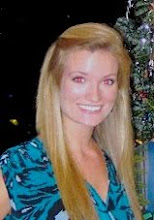
The polarity between the hardened fast-paced environment of agency PR life versus the cushy, always-the-same-pitch mentality of corporate life has undoubtedly created an impression in my thoughts, and, like most uninformed preconceptions, was wrong.
This past Wednesday our communications class was able to host two members of the largest independent PR company in the world,
Edelman. Jenn Little, a PR professional with years of professional experience in the field, is a veteran of both agency and corporate life whereas Ashley Maddocks, a recent graduate, is still developing a firm footing at the company. The two offered alternate perspectives on the PR world and painted a very different picture of life in an agency with high profile clients such as
Burger King,
Dove and
Dickies workwear.
While the fast-paced environment that agencies are known for is often true in waves and felt even more at the small regional office that the two work at where junior executives, including Maddocks, often feel the brunt of the workload. According to Little, "Ashley's biggest challenge is knowing what has to be done, when it needs to be done, and how she is going to get it all done." While senior members of the corporation often have more of a hand in creating the plans, it is up to Ashely and her colleagues to implement them by making client deadlines and managing materials. As for corporate versus agency speed of work, Little added, "I don't think there's anything slow in PR because we're always communicating."
One thing that did surprise me is the interconnectedness between agencies and other PR professionals both in the corporate world as well as through the area's local boutiques. Little warned, "if you want to do PR in the Dallas Ft. Worth area, you better have a stellar reputation because there's a really strong networking area," as Maddocks added, "everybody knows everybody at least through someone else." These words of advice were reinforced with a story about an intern whose poor performance at another firm was communicated through Little's office and was ultimately denied the position... scary if you think about it.
Here's one aspect of agency life (and corporate life for that matter) that isn't surprising at all: the importance of WRITING. Maddocks explained that "you talk to reporters, it's great, it's fun, you might go to an event here or there but primarily your job is writing," emphasizing this point by listing the documents written that day, including a few press releases and a pitch among others.
Perhaps what surprised me the most on this subject was the permeability between agency and corporate PR positions. While I was under the impression that once students were out of college they were offered a small grace period in which to determine whether they fit in a corporate office or PR agency and once they decided, that was your home for the rest of your career. To my surprise, Little worked for a university, an agency and Pizza Hut before taking the job at Edelman... and seemed to transition seamlessly into each role. In addition, Little was able to incorporate her passion for sports into her agency lifestyle, both through different clients and Edelman's open policy of finding your niche within the company's departments.
According to Maddocks, she loves PR because "you get a lot of opportunities to get experience that no one else will get." And both agree, in this business it seems like almost nothing is valued more than experience.







